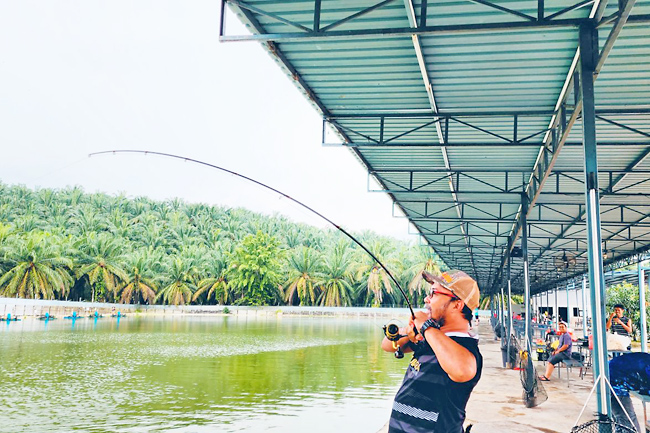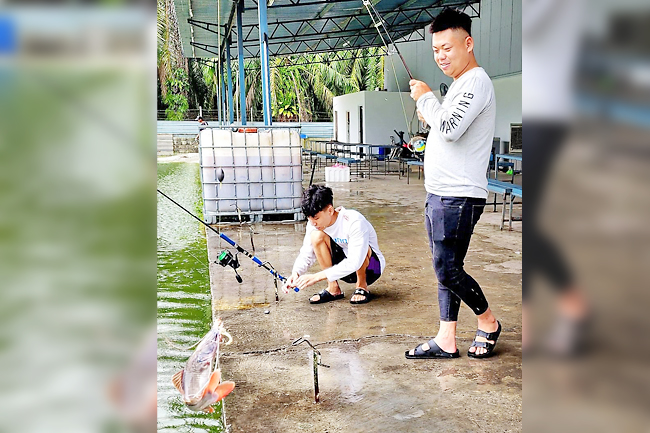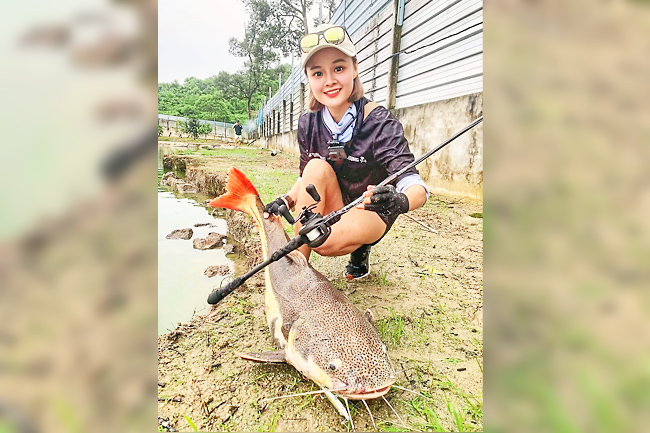ANN/THE STAR – Novice anglers often face challenges in finding opportunities to learn the ropes. Imagine you’re new to fishing and strike up a friendship with an experienced angler.
You muster the courage to ask them to take you fishing sometime. The response is usually either a straightforward refusal or a vague promise of a future outing that never materialises.
Seasoned anglers tend to shy away from taking beginners on fishing trips because such outings often turn into prolonged instructional sessions. Faced with novices who lack knowledge and skills, experienced anglers end up socially obligated to handle tasks like setting up rigs, baiting hooks, and even unhooking landed fish.
Essentially, they become mentors who double as assistants while their mentees grapple with the fundamentals of handling a rod and line.
Bear in mind that seasoned anglers want to catch fish, too, and will be deprived of the chance when they spend time helping white-belt anglers.
That being the case, how and where will junior anglers then ever find good chances to practise?



To get through this learning curve without imposing on their betters, they need “payponds”.
“Nearly every angler I know started out at payponds. You can spend every day tying knots and rigs at home, but without a fish at the other end of the line, there is little chance to really learn how to fish,” said angler KL Ng, 45, who has been angling for over 20 years.
Ng said he would still occasionally drop by a saltwater paypond in Teluk Panglima Garang, Selangor, to practise fighting fish above 30kg, such as groupers.
“You have to spend time angling and making tonnes of mistakes to learn, develop the needed hand-eye coordination, and clock in enough repetitions (casting the lure or bait thousands of times) for muscle memory to form.
“How to cast without whipping the rod so hard that the bait rips clean off the hook? Which angle in the arc of the cast to release the line to get the optimal distance? How to fight a hooked fish by applying side-strain to stop it from veering left and right?
“Just like how golfers regularly go to the driving range to practise their swings, anglers who treat their passion as a sport also need to regularly practise.
“An actual fishing trip can be seriously expensive, so a paypond is more viable in the name of practice,” Ng said.
The word is not in the dictionary, but search for “paypond” on the internet, and you will find them all over Malaysia. Another way to find them is to search for “kolam bayar” or “kolam pancing”.
Simply put, you pay for the right to fish in these ponds stocked with fish.
Payponds are where you can make a fool of yourself. See for yourself how fish can pull hard enough to unravel a lousily tied knot.
Feel how, because you tighten the fishing reel’s drag too much, a strong fish can snap your line.
“I hear, and I know. I see, and I remember. I do, and I understand. That’s how you learn angling,” stressed Ng.
In a paypond, you can realistically expect to set the hook on at least one large fish, even as a total newbie. By “large”, that will be between five kg and 30kg, if not larger.
It will be a tough fight. Your rod will bend to such an extreme curve that you face the real prospect of helplessly holding on as your rod breaks with a sickening “PIAKKK!”.
In Kamunting, Perak, the owner of two large payponds, Teoh Bee Khoon, asserts that he has released more than 40 tonnes of specimen-size fish into his ponds over the last 10 years, and the largest ever hauled up from his ponds was a giant Mekong catfish weighing over 40kg.
“There are fish deaths, but we don’t keep track of exactly how many fish are in the ponds,” he said.
Not just any fish. Teoh stocks his ponds with giant Mekong catfish, Asian and Amazon redtail catfish, Siamese carp, temoleh (Julien’s golden carp), pacu, giant toman, freshwater barramundi and patin catfish.
These are hard-fighting game fish from around the world, and some of them are non-native species which must not be allowed into Malaysia’s public waterways. Teoh said Fisheries Department officers visited his ponds more than once to make sure there was no chance of the fish escaping.
“The officers reminded us that if we ever cease operations, we must contact them to make arrangements for the fish to be moved to a new, safe location under their care,” Teoh said.
Some payponds, especially those near the sea, are stocked with mostly farmed golden snappers (jenahak) and mangrove jacks (siakap merah) of about one kg which anglers are allowed to bag; these ponds charge a premium fishing fee since the objective is for you to have your fishing fun and eat the fish too.
But the fish in Teoh’s payponds and in other payponds of similar styles are not for sale.
You cannot bag your catches to eat or rear them at home because these ponds have a strict catch-and-release policy. – Arnold Loh



















































